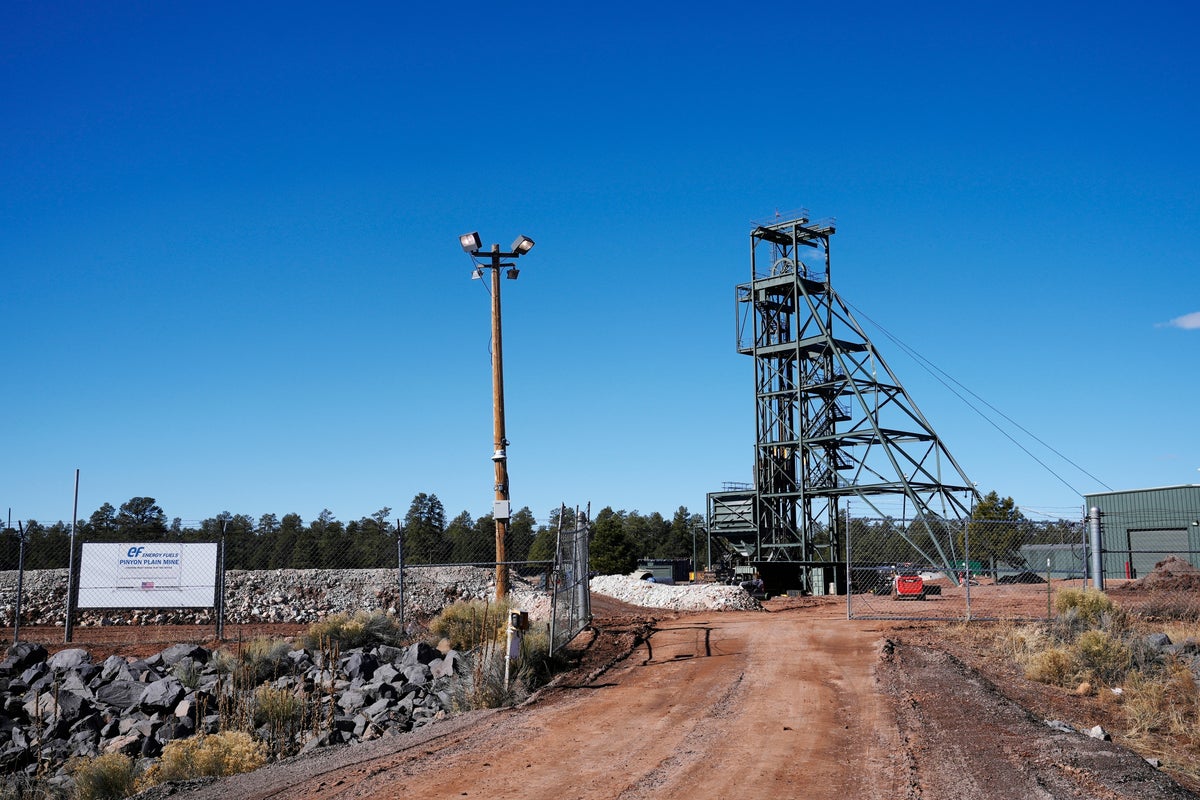Experts warn victory for Energy Transfer, whose CEO is a Trump donor, could have a ‘chilling’ effect on free speech. A fossil fuel company’s $300m lawsuit against Greenpeace opens in rural North Dakota on Monday, in a case that has been widely condemned by constitutional rights experts as baseless, bad faith litigation that threatens free speech.
![[a man in a suit looks off to the side]](https://i.guim.co.uk/img/media/97ee7c24949551e5330653f2cdcbd2b4e6042d1c/0_0_4059_2706/master/4059.jpg?width=445&dpr=1&s=none&crop=none)
Energy Transfer Partners, a Dallas-based oil and gas company worth almost $70bn, accuses Greenpeace of defamation and orchestrating criminal behavior by protesters at the Dakota Access pipeline (Dapl). The anti-pipeline protests in 2016 and 2017 were organised by Standing Rock and other Sioux tribes and supported by more than 300 sovereign tribal nations, inspiring an international solidarity movement after Energy Transfer’s private security unleashed attack dogs and pepper spray against nonviolent protesters.
![[Indigenous activists protest the Dakota Access pipeline]](https://i.guim.co.uk/img/media/5309c3a3fadf6bbb226bea1ae70e4d545baee806/0_0_3000_2000/master/3000.jpg?width=445&dpr=1&s=none&crop=none)
Tens of thousands of people from across the country and world participated in the Dapl protests, and Greenpeace was among scores of non-profit groups that supported the Standing Rock tribe’s opposition to the pipeline. But Energy Transfer alleges in court filings that thousands of protestors were “incited” to come to North Dakota thanks to a “misinformation campaign” by Greenpeace.
The lawsuit has been widely denounced as a classic strategic lawsuit against public participation (Slapp) – a form of civil litigation increasingly deployed by corporations, politicians and wealthy individuals to deliberately wear down and silence critics including journalists, activists and watchdog groups.
The case threatens to bankrupt Greenpeace US, but the biggest impact could be a chilling effect on free speech and activism more broadly, according to environmental and civil liberty experts consulted by the Guardian. The five-week jury trial is scheduled to start on 24 February in Mandan, Morton county.
“This case is an emblematic example of a Slapp lawsuit – a way of weaponizing the legal system by wealthy and powerful people to silence their critics by dragging them through long, stressful, expensive litigation where winning is almost irrelevant,” said Kirk Herbertson, a New York based attorney and the US director for advocacy and campaigns for EarthRights International.
“This was not a Greenpeace event. They were not controlling what the people coming in were doing … there is nothing in the court filings that show Energy Transfer suffered actual harm due to actions by Greenpeace,” added Herbertson. “This case feels more like a trophy hunt and an attempt to shut down free speech rather than an actual good faith attempt to seek remedies for harm.”.
Energy Transfer first filed a Rico lawsuit in 2017 alleging federal racketeering and state tort claims. At the time Kelcy Warren, the company’s billionaire founder and a major donor to Donald Trump, told CNBC that the company was “greatly harmed” by Greenpeace.
“Everybody’s afraid of these environmental groups and the fear that if you fight back it may look wrong … but what they did to us is wrong and they’re going to pay for it,” said Warren. Warren has previously said environmental activists should be “removed from the gene pool” and a Wall Street Journal profile of him detailed his relentless pursuit against green groups.
The federal racketeering case was dismissed on 14 February 2019, but seven days later Energy Transfer re-filed a virtually identical suit in North Dakota state court. Energy Transfer is suing three Greenpeace entities, claiming that they are a single organization rather than independent members of the Greenpeace network.
After six years and thousands of filings, this will be the first case under the new Trump administration to test what the first amendment will look like. The lawsuit centres around nine statements made by Greenpeace during the Indigenous-led protests – none of which were original to the group, while three were taken from two letters written by another organization, including one with more than 500 signatories. Greenpeace argues that the statements are legitimate expressions of the first amendment protected right to speech.
Energy Transfer is also seeking to hold Greenpeace liable for actions taken by protesters that have no proven connection to the group. “Greenpeace is a great big target. If you’re trying to send a message to the world, go after Greenpeace,” said James Wheaton, a longtime journalism law professor at Stanford and UC Berkeley who founded the First Amendment Project. “The pipeline lawsuit is a classic Slapp suit.
More than 330,000 individuals and 430+ organizations including Amnesty International, the American Federation of Teachers and Indigenous Environmental Network have signed an open letter denouncing the lawsuit as meritless – and an attempt to rewrite history by claiming that Greenpeace orchestrated what was an Indigenous-led movement.
The Standing Rock tribe has always asserted that the pipeline is a violation of its sovereignty as it crosses unceded historical and sacred Sioux territorial lands. The tribe wants a federal court to shut down the pipeline, and in October filed a lawsuit accusing the army corps of engineers of unlawfully allowing it to operate without an easement, a complete environmental assessment or sufficient emergency spill response plans.































